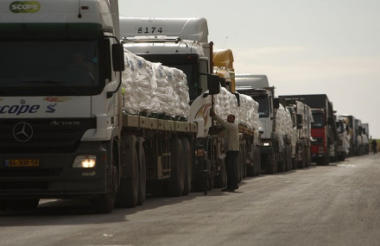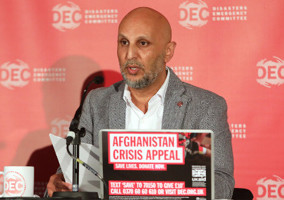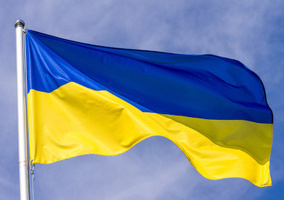Following World Humanitarian Day last week, I realise I am deeply frustrated as a humanitarian. Not because of the organisation I work for, nor by the people I work with. Rather, I am finding it harder to do my job, I mean really do my job.
At the annual celebration of all things humanitarian, we reflected, along with our partners, on what “humanitarian” means to us. For me there were really two things that came to mind. Firstly, humanitarian work is not about swooping in and saving people. It is about listening to people, understanding their context, and helping to provide them with the means to improve their own lives. People do not want to be handed solutions to the challenges we think they face. Instead, we need to recognise and respect the individual agency of those affected by crisis. Secondly, it is about giving everybody who needs it equal care and attention, treating them fairly and with dignity, regardless of their background.
The challenge is in the second principle – where factors limit our ability to give everybody the care and attention they deserve, where the decision about who gets and who does not, is based on something other than simply whether they need it. Now of course I am not naive – with finite resources we are always having to make choices about who we support and where. But beyond that it seems the space for equal and fair humanitarian response is shrinking – and with it, my ability to do my job.
Lack of media attention
It first starts with our ability to raise money. The disproportionate amount of money raised for Ukraine compared to other global disasters has been well documented, but it goes beyond that. Even before Ukraine, there was marginal news column inches given to the successive droughts and resulting famine happening in parts of East Africa; limited mention of the brutal ongoing Ethiopian civil war; no real sense that the one million Rohingya who were forced to flee to Bangladesh might still need some attention; sparse coverage of the devastating impact of climate change in rural Nepal, and I could go on.
Without such media attention, agencies like ours, reliant on public donations largely driven by what they read and see on the news, have limited ability to respond in these places, at least not to respond at the kind of scale we need to as humanitarians. I understand there is plenty of other news out there, but it is still frustrating to shape humanitarian response not on the level of need, but on the whim of the editors.
Political frustrations
Then there is the broader political environment. Politics is everywhere naturally, but it greatly hampers our access despite our supposed political independence. Government policy trickles down even to us non-governmental actors. Their priorities, to some extent at least, become ours, but they rarely reflect the spread of global need. The recent FCDO strategy shows an adjusted emphasise on UK interests rather on the interests of vulnerable communities. There are other such countries doing similar of course, but this jars with what humanitarian action should be about and again frustrates our ability to help those most in need.
Individual decisions are also limiting the space for action. The UK regulatory approach makes getting funds or supplies in to help the most vulnerable in Afghanistan almost impossible. I understand concerns about Taliban authorities and possible interference, but it has created a vacuum where banks and NGOs don’t know what they can or cannot do. There are funds waiting to be put to work helping those who need them, and it is frustrating when they cannot be deployed.
Similarly, the political decisions of countries like Turkey mean we can support Syrians with much-needed employment and vocational training but not those coming from Afghanistan, despite fleeing very similar persecution, and we are entirely powerless to do anything meaningful with them. Fair and equal and dignified treatment, this is not. Frustrating, it most certainly is.
As a humanitarian I want to do my best for people regardless of whether a crisis is front page news, irrespective of what broader policy direction there is, no matter what decision any one person or authority might make. We should be independent from all this, we should be able to help all those who we have the potential to, we should be able to treat an Afghan in need like a Syrian, like a Ukrainian, like a Nepali – I should be able to do my job.
So, while there was a lot to celebrate this World Humanitarian Day, until we humanitarians are free to apply this basic principle of equality in our work, there is still so much more progress we could make. Until then, it relies on all you global citizens out there, to shout, to stomp, to petition, to protest, to appeal, to write, in short to ensure that the driver for support is the level of need, and nothing else. After all, are we not all humanitarians really?
Kai Hopkins is head of humanitarian programmes at World Jewish Relief












